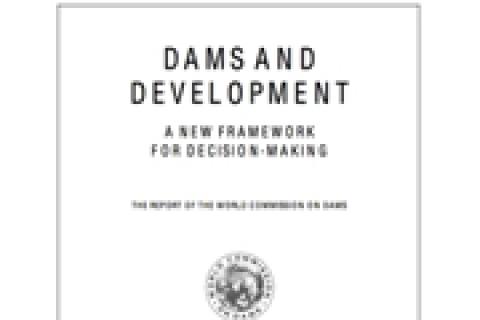One of the major myths about tree plantations is that they help to alleviate pressures on forests by providing alternative wood sources. This has been proven false in practically all southern countries, but the myth still prevails in many circles, particularly among professional foresters. Another major myth is that plantations are "planted forests", having the same positive impacts as forests. This has also proven to be absolutely false, but foresters still insist in calling then "forests."
Other information
The Heinrich Böll Foundation awarded the Petra Kelly Prize 2000 to two Mapuche women --Berta and Nicolasa Quintremán Calpán-- as a recognition of their struggle to protect the Mapuche Pehuenche's rights against the Spanish ENDESA Company and the Chilean Government over the construction of the RALCO dam.
Dams and Development. A new framework for decision-making. The report of the World Commission on Dams
The World Commission on Dams issued this report, which contains a comprehensive review of dam building and a framework for planning water and energy projects while protecting people from the negative impacts of such development.
The World Bank’s 1991 Indigenous Peoples Policy (Operational Directive 4.20) forms one of ten so-called “safeguard policies” that aim to ensure that Bank-funded operations do not cause adverse environmental and social impacts in borrower countries. OD4.20 seeks to ensure that Bank staff, borrower governments and implementing agencies take positive action to safeguard indigenous rights by: securing land tenure and resource access; mitigating negative development impacts; guaranteeing participation; and assuring receipt of benefits.
Three films related to forest conservation and the problems caused by pulpwood plantations received an award at the 17th International Environmental Film Festival that took place from 18 to 22 October 2000 at the Friedrichsbau-Lichtspiele in Freiburg, Germany.
A recent study of the Tellus Institute and Stockholm Environment Institute-Boston Center concludes "that while the CDM could induce some legitimate lower-emission electricity generation in host countries, it could also give rise to a considerable amount of spurious emissions allowances by crediting non-additional ("free-rider") activities --activities that would have taken place even in the absence of the CDM." The research finds "that under some plausible CDM regimes, the CDM could serve primarily as an instrument for generating spurious credits, and only secondarily as an instrument for e
The International Institute for Applied Systems Analysis (IIASA), based in Laxenburg, Austria. carried out a detailed study of Russia's biosphere, which contains a fifth of the world's forests. Its report puts in question the whole idea of using carbon sinks as a means of "compensating" for CO2 emissions.
During the climate change discussions, some have argued that, given that old-growth forests are carbon reservoirs --and not carbon sinks-- the world's climate would benefit from cutting them down, converting the wood into durable products and replanting the clearcut area. The existing carbon would be safely stored in wood products and the plantation trees would act as sinks for many years, until they reached maturity. This would enhance --so they say-- the carbon sink capacity of forest ecosystems.
Scientific evidences questioning the effectiveness of tree monocultures as carbon sinks are increasing. In case tree plantations are included in the Clean Development Mechanism of the Kyoto Protocol there is the risk that --as has happened in the past and is still happening-- vast areas of forests and grasslands in the South will be substituted by monocultures based on a reduced number of fast-growing tree species. This would mean a dramatic decrease in the biodiversity of such areas, both considering number of species and complexity of fluxes at the interior of the system.
The following are some quotes from indigenous peoples' representatives at Lyon, which --in sharp contrast with government delegates-- address the true issues at stake, in a climate change process which has until now ignored indigenous peoples (the Forum of Indigenous Peoples and Local Communities on Climate Change also issued in Lyon a declaration, which is available at: http://www.wrm.org.uy/english/IPlyon.htm ):
In WRM bulletin 35 we exposed the conflict of interest among some of the experts who produced the IPCC special report on land use, land use change and forestry last June ("Sinks that stink"), resulting from their direct involvement in companies which would economically benefit from the inclusion of sinks in the Kyoto Protocol.
A project implemented in Uganda by Norwegian company Tree Farms to set up between 80,000 and 100,000 hectares of plantations of pines and eucalyptus to act as carbon sinks has been severely questioned because of its negative social and environmental consequences. It has been defined as a "loss-loss-loss" situation, where the profits for the company are doubtful, local peasant communities are losing their lands and working for miser salaries, and Uganda is losing its sovereignity in relation to the management of its territory and natural resources (see WRM Bulletin 35).

